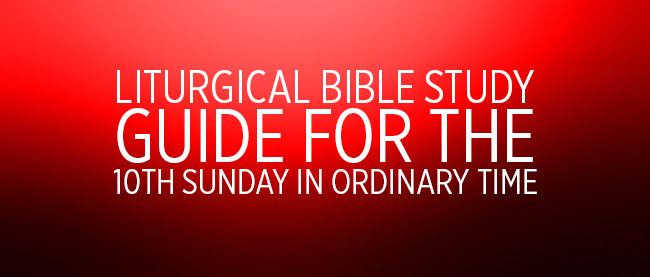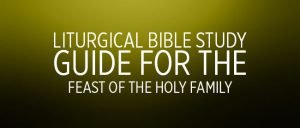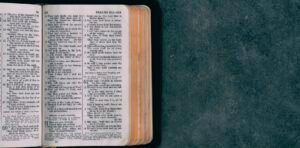1st Reading – Genesis 3:9-15
The early chapters of the Book of Genesis have much to teach us about why things are as they are today. Today’s first reading tells us of the goings on immediately after Eve, then Adam, ate of the forbidden tree. Is this a true account, exact in every detail? We don’t know as there were no witnesses there taking notes. What we do know is that all mankind is descended from Adam and Eve and that we all hear the stain of their first (the original)
sin. We also know that the Holy Spirit guided the human author of this account thousands, if not millions, of years later to set down the theological truths which God wanted to be revealed.
2nd Reading – 2 Corinthians 4:13-5:1
During ordinary time in Cycle B, the second letter of Saint Paul to the Corinthians is proclaimed immediately after Easter. We will hear from 2 Corinthians for five weeks.
In Saint Paul’s time, Corinth was the capital of the province of Achaia and the seat of the Roman proconsul. Julius Caesar built it in 44 B.C. on the ruins of a Greek city of the same name. It had two ports, one on the Aegean Sea and the other on the Gulf of Lepanto. It soon became a prominent center of commerce with a much higher standard of living than its neighbors. It was also a loose-living city.
Saint Paul established a Christian community at Corinth during his second missionary journey (A.D. 50-52), spending about one and one-half years there aided by Silas and Timothy. About a year after Paul left, the city was visited by Apollos, a brilliant preacher and also briefly by Saint Peter. Some two years later some Christian Jews from Palestine arrived; people who Saint Paul calls “false apostles” (2 Corinthians 11:13). This bad influence prompted Saint Paul to write his first letter to the Corinthians shortly before Easter 57. The false apostles twisted what Saint Paul said in his first letter; accusing him of being all talk, irresponsible, and ambitious – pointing out that he had not returned to Corinth. This caused Saint Paul to write this second letter, probably near the end of 57 or in early 58, in preparation for his visit which will come after his visit to Macedonia.
Gospel – Mark 3:20-35
Mark’s gospel begins with John the Baptist and the beginning of Jesus’ public ministry. After His temptation in the desert (which occupies two verses), Jesus sets out to call His disciples; working miracles around the Sea of Galilee. Our reading for today occurs immediately after Jesus appoints the twelve apostles.





